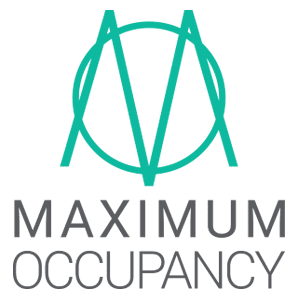The Kingdom of Saudi Arabia is on the brink of a revolution. This revolution will be neither political nor ideological. Instead, it will come in the form of keys — hundreds of them, representing millions of dollars’ worth of investment.

In the wake of plummeting oil prices resulting from the uneasy mixture of oversupply and tightening Chinese demand, one could be forgiven for believing that the Kingdom’s economy is approaching a state of crisis. However, the Organization of the Petroleum Exporting Countries (OPEC) giant has long been prepared to ride out this period of financial turbulence. Long before the oil prices began to dip, the government was prepared to deal with the budget gap created by diminished oil revenue.
In late January, top Saudi officials announced a crucial element of this plan: namely, reducing the Kingdom’s reliance on oil by shifting from an economy based on oil and public sector employment, to a knowledge-based economy, placing qualitative growth at the forefront. This plan is backed not only with strategy, but with a budget of US$628 billion; enough to finance years of developments within multiple sectors, including IT and tourism. And at the intersection between IT and tourism lies hospitality, which is being completely transformed on a global scale by the use of cutting-edge technology.
This is the revolution that is now been brought to Saudi Arabia’s doorstep – and it couldn’t be coming at a better time.
2016 will see soaring growth in Saudi tech and hospitality
With nearly 50 per cent of the population aged 24 or younger and a national median age of 26.8 years, Saudi Arabia is a country of tech-savvy youth accustomed to all the conveniences of the digital age. And the size and growth of the IT industry reflects this; in 2016, IT spending in the Kingdom will soar to a predicted US$35.9 billion, representing 3.8 percent year-on-year growth. Big data analytics, cloud services and social businesses are finding increasing traction.
On the other side of the equation, the hospitality industry is gaining massive momentum in the wake of the government’s push towards diversification. There are 108 upcoming major hotel projects in Saudi Arabia featuring 23,000 rooms, and the tourism sector is expected to create nearly two million direct and indirect jobs by 2020. The hospitality sector is increasingly becoming an attractive career option to Saudi nationals, and international hotel chains are taking note — Accor, Hilton Worldwide and other international hotel chains are implementing management training programs for Saudi locals. Religious tourism will be a major driver of the industry moving forward, with 25 million visitors forecasted to visit Makkah and Madinah by 2025, and overall inbound tourism likely to increase by 13 percent annually.
In 2015, the number of hotel rooms across the Kingdom more than doubled, as did the number of employees in the tourist sector, and 2016 is set to see an even greater jump in growth.
Massive growth attracts global hospitality chains
International hotel brands are taking advantage of the boom in hospitality with a series of planned expansions. AmericInn, the largest mid-scale hotel brand in the United States, has announced plans to expand overseas and strengthen its presence in the Middle East, of which Saudi Arabia is an essential lynchpin. A branch of Swissôtel in Khobar has also been announced, joining a lineup of other hotels currently being developed in Saudi Arabia by its parent company FRHI, including Raffles and Fairmont hotels in Jeddah and Riyadh. According to Sami Nasser, Senior Vice President of Operations – Middle East, Africa and India at FRHI, “Continuing our pipeline growth in the Kingdom of Saudi Arabia is a key focus”.
In a recent interview with business facilitation company Naseba, Muhammad Al-Amir, Managing Director of Riyada International Hotels & Resorts, outlined the chain’s Saudi expansion plans: “For the next five years we intend to open ten new properties in the major cities in Saudi Arabia such as Riyadh, Jeddah, Mecca and Medina as well as in secondary cities as Hael, Tabuk, and Jubeil. This will all be under the umbrella of Wyndham Hotel Group — the world’s largest hotel operator … We will focus on developing the Ramada Encore three-star brand and the Days Hotels.”
Mr. Al-Amir will be among the speakers at the Hotel Technology Summit taking place in Riyadh on March 20th and 21st, 2016. Taking place against the backdrop of the parallel rapid growth of hospitality and IT in Saudi Arabia, the summit will showcase the best in hotel technology to an audience of 120 leading hospitality decision makers.
The Hotel Technology Summit is being organised by Naseba in partnership with Hospitality Financial and Technology Professionals (HFTP), the world’s leading global hospitality association.
“This event is part of HFTPs growth around the world that our stakeholders have been requesting for quite a long time”, said Frank Wolfe, CEO, Hospitality Financial and Technology Professionals, (HFTP). “Our partnership with Naseba has far exceeded our expectations and we are happy to continue it. The Riyadh Hotel Technology Summit has the promise to be more successful than the Dubai event which was chaired by HFTP Vice President, Lyle Worthington, CHTP, and held this past November which was above HFTP expectations.”
The summit will provide a glimpse into the future of hospitality — one where we have moved beyond the age of card keys and mobile booking apps, into cloud-based services, the use of artificial intelligence, device and entertainment autonomy, and more.
eHotelier is proud to partner with the Hotel Technology Summit. For more in formation, visit the Hotel Technology Summit Saudi Arabia 2016 event listing.













